Books for Interfaith Day Campers
Things I dislike about Christianity:
- Cheesy God-Loves-You Books. I’m looking at you, new Bernstein Bear books…especially that scene in “God Loves You” when Papa Bear tries to explain the science behind rainbows and Mama cuts him off to tell the cubs that rainbows are a gift from God. Ugh.
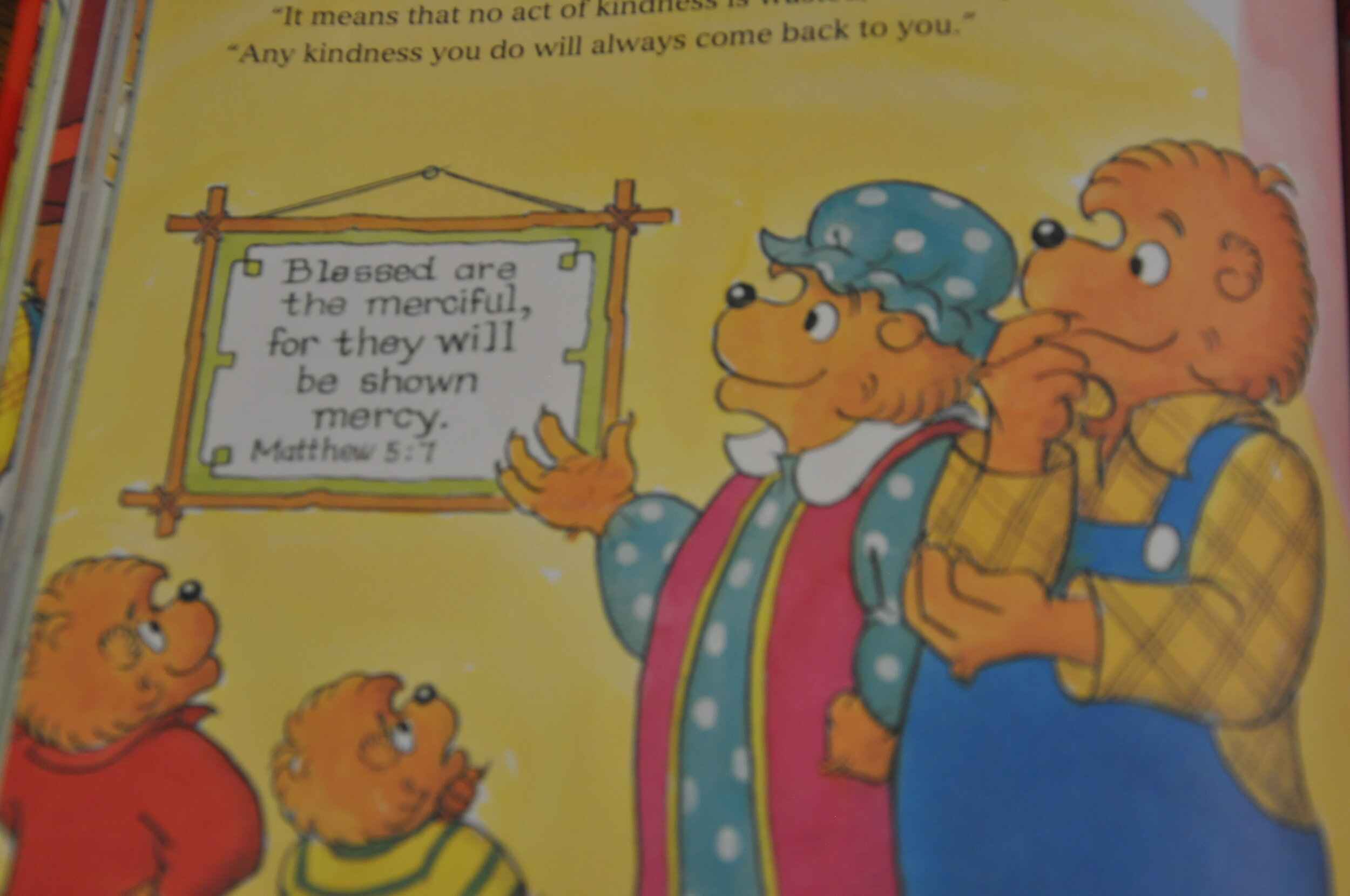
- The politics of right-wing Christians
- The continued insistence on evangelism, even though it’s had a hand in nearly all historical evils
Things I like about Christianity (in order of importance):
- Familiarity with the New Testament makes Christopher Moore’s book Lamb: The Gospel According to Biff even more hilarious.
- The idea that everyone should be nice to one another
Therefore, when my Episcopal-Priest-in-Training Friend mentioned that she was partnering with a Refugee Resettlement Office and offering an Interfaith Day Camp (Theme: The Golden Rule) at St. Peter's Episcopal Church, I was anxious to get on board. The two of us sat down with a bottle of wine one night and planned our week. I put myself in charge of maps, books, and games. My friend did all the actual work (you know, the organizing, purchasing, feeding, creating of legal forms, and anything involving prayer or actual religion). Although my “games” all quickly deteriorated into chaotic sessions of Freeze Tag, map time and reading time was a huge success. Thank goodness there are some awesome authors out there who know how to write a story kids care about. The only time our group of 4-9 year olds all sat quietly was during story time. Here’s what we read:Sitti’s SecretNaomi Shihab Nye’s picture book is about an American girl who visits her grandmother in the Middle East. They don’t have a common language, but there methods of communication are filled with gestures, smiles and hugs. At the end of the book Sitti writes a letter to the US president, reminding him to remember her lovely grandmother when making decisions. The book was published in 1997 but has become more and more relevant over the past twenty years.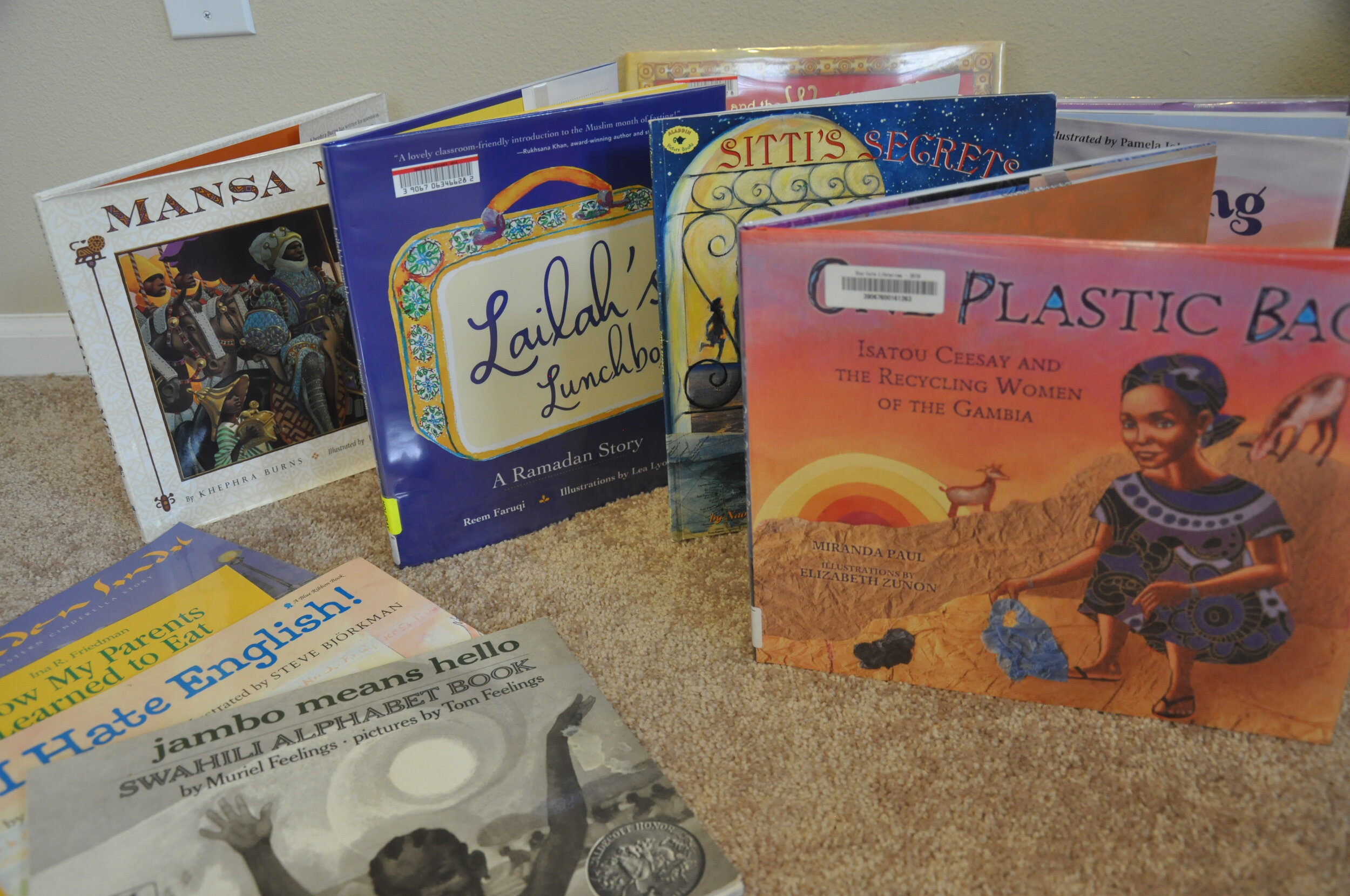 Before reading this book, I had kids talk about their “special places” in the world – maybe where they used to live or where their family was originally from. Having been a middle school geography teacher, I was expecting a total lack of map knowledge from these kiddos (you know that statistic about how most American high schoolers can’t find Canada on a map? TOTALLY TRUE), but these campers proved me wrong. The five and six year olds marched right up to the map, and colored in Libya, Somalia, Spokane, and Arizona. The priest at the church colored in South Africa and talked about a road trip he’d taken through the country. There was a small squabble over who got to color in Ethiopia, as several of our charges were from that particular corner of Africa. After coloring in their special places, the kids talked about how hot it was (“because it’s close to that line thing…what’s it called again?”) and all the uncles, aunties, and grandma’s that were still living there. This was a perfect segue to the book, although none of the kids could understand the language barriers, as they all still spoke the language of their grandmas.
Before reading this book, I had kids talk about their “special places” in the world – maybe where they used to live or where their family was originally from. Having been a middle school geography teacher, I was expecting a total lack of map knowledge from these kiddos (you know that statistic about how most American high schoolers can’t find Canada on a map? TOTALLY TRUE), but these campers proved me wrong. The five and six year olds marched right up to the map, and colored in Libya, Somalia, Spokane, and Arizona. The priest at the church colored in South Africa and talked about a road trip he’d taken through the country. There was a small squabble over who got to color in Ethiopia, as several of our charges were from that particular corner of Africa. After coloring in their special places, the kids talked about how hot it was (“because it’s close to that line thing…what’s it called again?”) and all the uncles, aunties, and grandma’s that were still living there. This was a perfect segue to the book, although none of the kids could understand the language barriers, as they all still spoke the language of their grandmas.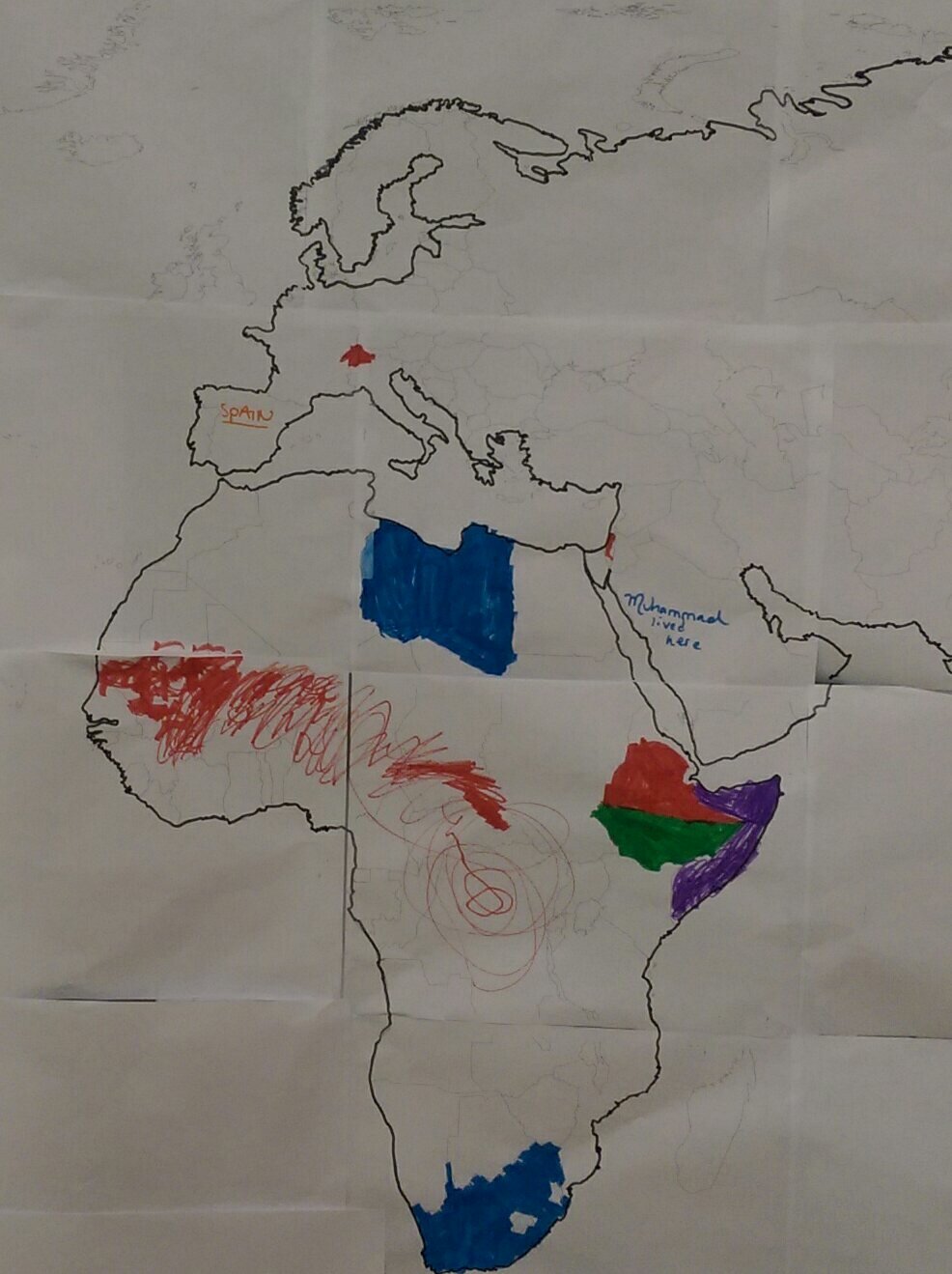 Lailah’s Lunchbox: A Ramadan StoryMuch like author Reem Faruqi, Lailah feels a bit lonely after immigrating to Georgia. The story is about how Lailah learns to share the joy of Ramadan with her new teacher and classmates. While Lailah in the story was the only Muslim at her school, feeling a bit lonely and out-of-place, the kids I read this book to are lucky to live in Seattle’s International District, where there teachers lead songs about saying hello in twenty different languages and nobody looks out of place in a headscarf. The kids all looked at me like I was crazy when I asked if they were the only ones in their classes who fasted.
Lailah’s Lunchbox: A Ramadan StoryMuch like author Reem Faruqi, Lailah feels a bit lonely after immigrating to Georgia. The story is about how Lailah learns to share the joy of Ramadan with her new teacher and classmates. While Lailah in the story was the only Muslim at her school, feeling a bit lonely and out-of-place, the kids I read this book to are lucky to live in Seattle’s International District, where there teachers lead songs about saying hello in twenty different languages and nobody looks out of place in a headscarf. The kids all looked at me like I was crazy when I asked if they were the only ones in their classes who fasted.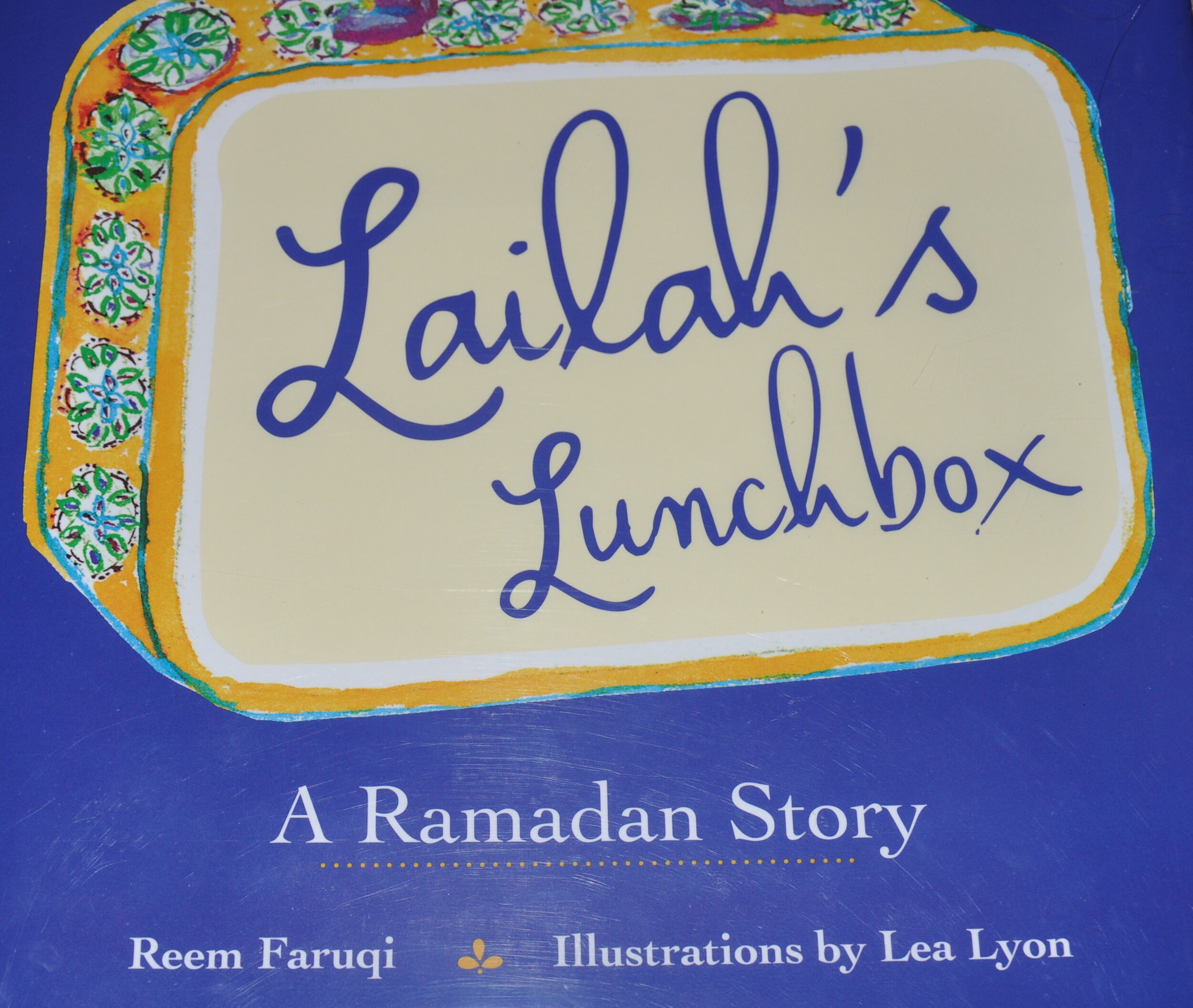 I loved this book so much because it made me think about fasting in a joyful way. I’d always felt a bit sorry for Muslim’s during this holy month (especially these years, when Ramadan falls in the long hours of summer), but this book reminded me that Ramadan is a time for celebration.Naturally, our campers didn’t need this message. They enthusiastically shared what they love most about fasting: extra recess time at school. If that’s not a cause for celebration, I don’t know what is.Kenya’s Song
I loved this book so much because it made me think about fasting in a joyful way. I’d always felt a bit sorry for Muslim’s during this holy month (especially these years, when Ramadan falls in the long hours of summer), but this book reminded me that Ramadan is a time for celebration.Naturally, our campers didn’t need this message. They enthusiastically shared what they love most about fasting: extra recess time at school. If that’s not a cause for celebration, I don’t know what is.Kenya’s Song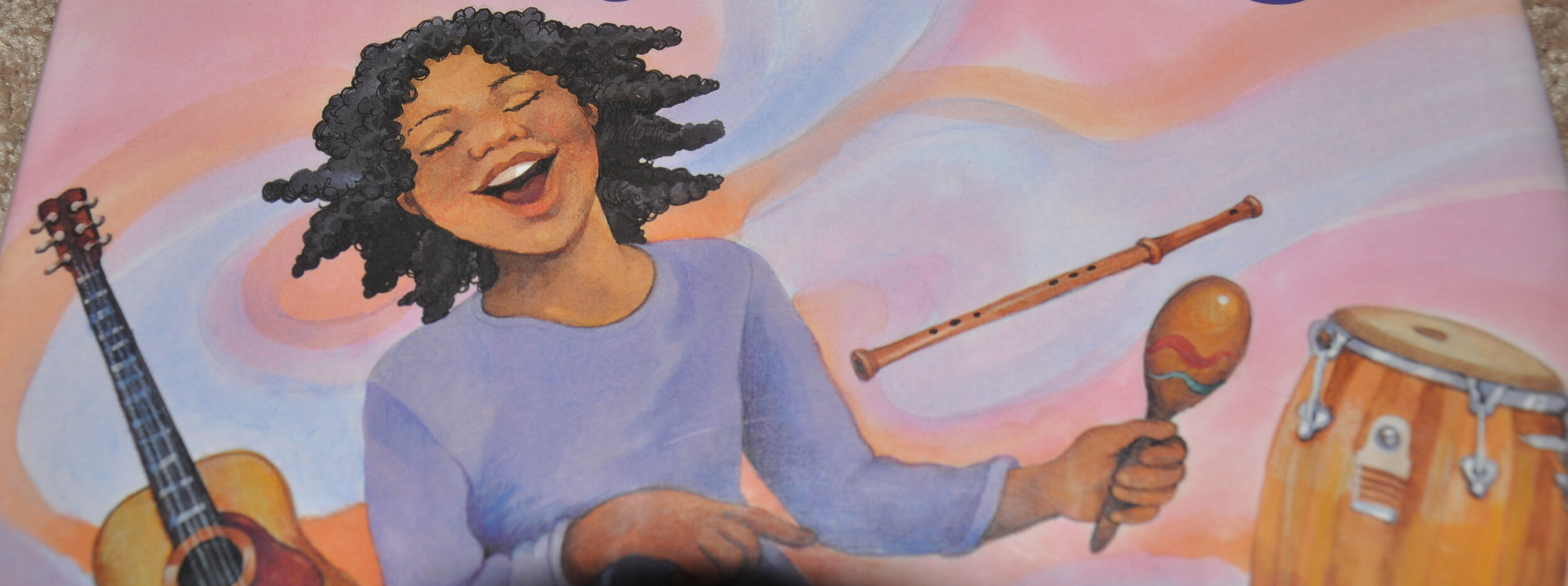 Although this book has nothing to do with religion, I loved Linda Trice’s book so much I read it to our campers anyways. Kenya’s homework assignment is to find and share her favorite song. After sampling music from all over the Caribbean, she made up her favorite song – the song of her community (“English, French and Spanish too! Music’s how I speak to you!”) Naturally, we all shared our favorite songs afterwards. I made our campers learn my favorite: “Take Me Out to the Ball Game.”One Plastic Bag: Isatou Ceesay and the Recycling Women of GambiaBefore venturing out for a community clean-up, we read One Plastic Bag, Miranda Paul’s true story about a Gambian woman who forms a business salvaging plastic bags and weaving them into purses. While it wasn’t my favorite picture-book-of-a-true-story-from-Africa (that would be 14 Cows for America), it was a perfect one for talking about how we should not only be nice to each other, but we should also be nice to the environment.So Interfaith Day Camp was fun. We talked about being nice to each other. The kids played together, ate together, hugged each other, and planned to see each other later at the playground. I learned a little bit more about Islam and Africa.
Although this book has nothing to do with religion, I loved Linda Trice’s book so much I read it to our campers anyways. Kenya’s homework assignment is to find and share her favorite song. After sampling music from all over the Caribbean, she made up her favorite song – the song of her community (“English, French and Spanish too! Music’s how I speak to you!”) Naturally, we all shared our favorite songs afterwards. I made our campers learn my favorite: “Take Me Out to the Ball Game.”One Plastic Bag: Isatou Ceesay and the Recycling Women of GambiaBefore venturing out for a community clean-up, we read One Plastic Bag, Miranda Paul’s true story about a Gambian woman who forms a business salvaging plastic bags and weaving them into purses. While it wasn’t my favorite picture-book-of-a-true-story-from-Africa (that would be 14 Cows for America), it was a perfect one for talking about how we should not only be nice to each other, but we should also be nice to the environment.So Interfaith Day Camp was fun. We talked about being nice to each other. The kids played together, ate together, hugged each other, and planned to see each other later at the playground. I learned a little bit more about Islam and Africa.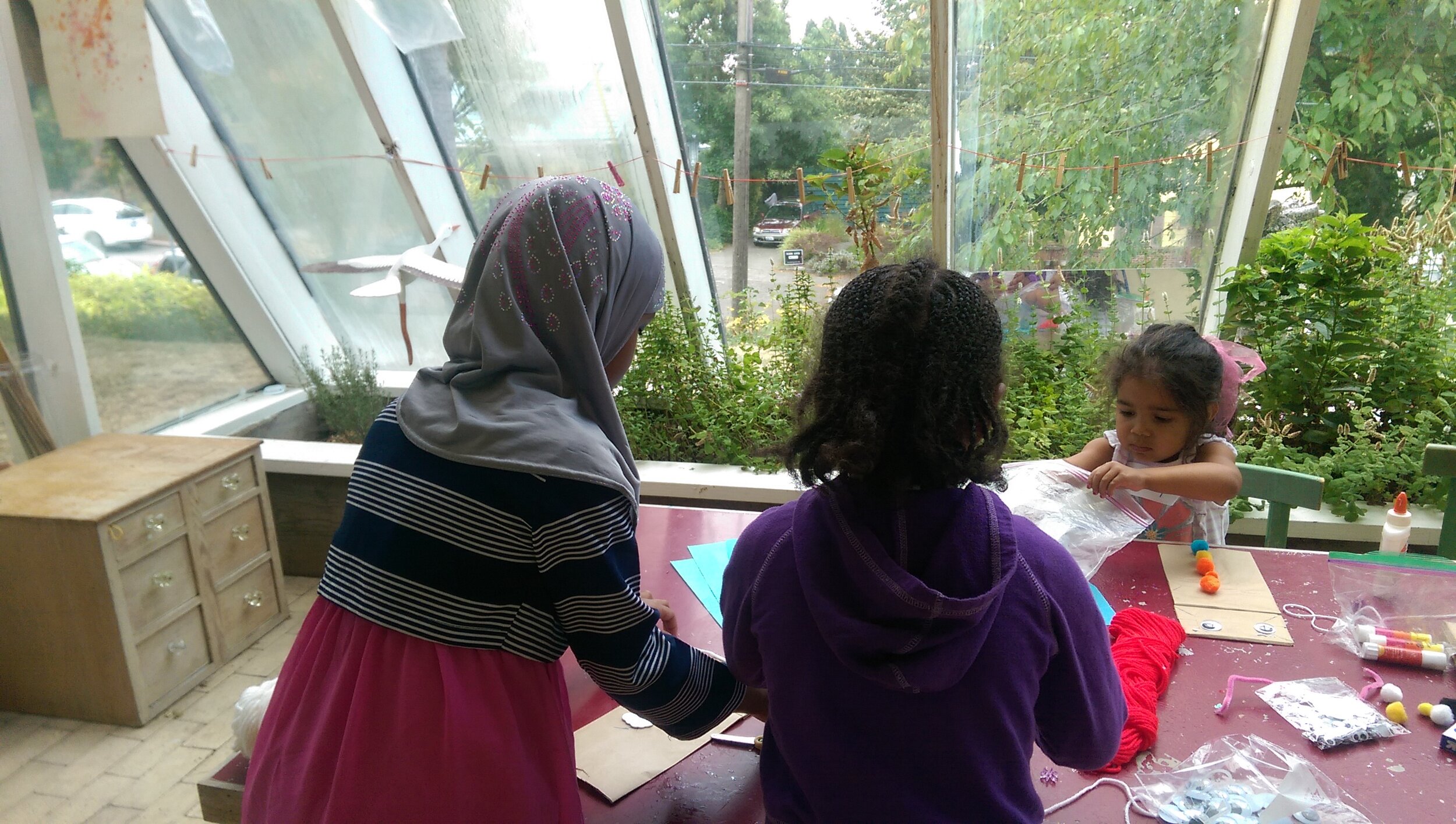 No cheesy God books were read. No Republican signs were waved. There were no converts to any religion. Success. Now I’m off to go re-read LAMB.
No cheesy God books were read. No Republican signs were waved. There were no converts to any religion. Success. Now I’m off to go re-read LAMB.
